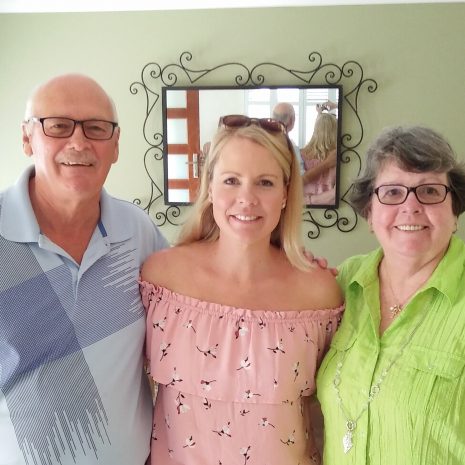Bowel, bladder, prostate and ureter cancer champion
Don’t wait for screening if there’s something in your body you feel isn’t right.
Jeff’s story
At age 45, father of two and busy public servant Jeff had noticed a low intensity ongoing pain in his lower abdomen. He hadn’t noticed any other symptoms aside from some constipation. Due to a busy work schedule frequent travel across North West WA, Jeff put off visiting his GP for a couple of months.
When he found the time to see his GP to discuss the pain, Jeff’s GP asked about his family history of cancer. The significant history along with the symptom prompted his GP to order further testing. Following an x-ray, Jeff was surprised to receive the news he had bowel cancer and had surgery to remove the ‘offending area’ of his bowel within a few days. After 6 months of chemotherapy Jeff was well for 10 years during which he underwent annual colonoscopies and bi-annual gastroscopies. As part of his screening, he also had regular blood and urine tests, which his doctor to discover microscopic traces of blood in his urine. In 2006 he had surgery for bladder cancer, and again 12 months later when he had a recurrence.
Over the years, Jeff continued his regular surveillance including colonoscopies, gastroscopies, blood tests, urine tests and cystoscopies, which was just as well because he was diagnosed with ureter cancer in 2010 and prostate cancer in 2013. Jeff underwent a prostatectomy at 61 years of age.
As of 2019, Jeff has been cancer free for nearly 6 years. He knows that he is only alive due to his regular follow ups and surveillance. He listens to his body and he’s no longer afraid to visit his GP when he feels something isn’t right.
Jeff’s advice
‘Listen to your body. If you’ve got any symptoms you’re not sure about get to your doctor to get it diagnosed’.
‘If you’ve got any doubt, even a niggling pain, get it checked out’.
‘I urge anyone to make sure you are regularly screened for this insidious disease and not leave it ’til it’s too late’.
Bowel cancer screening
Bowel cancer screening kits are designed for people who don’t have any noticeable symptoms of bowel cancer.
If you don’t have any bowel cancer symptoms and you’re eligible, it is recommended you participate in the free National Bowel Cancer Screening Program for people aged 50-74.
If you do have possible bowel cancer symptoms, it’s recommend you see your doctor, clinic nurse or health worker without delay.
Remember, the earlier cancer is found, the better your chances of survival. So, make sure you participate in free screening at every opportunity and see your doctor if you notice any unusual symptoms.
Prostate specific antigen (PSA) test
The PSA test measures the levels of PSA found in the blood. Normally, PSA stays within the prostate. Blood levels of PSA increase if the prostate is damaged.
The current PSA test is not a suitable population screen test. Unfortunately, we don’t have reliable medical proof that routine population testing does more benefit (increased prostate cancer survival) than harm (treating people who don’t need treatment and side effects of treatments).
Early detection of symptoms can significantly improve prostate cancer treatment. Men considering being tested for prostate cancer should do so with information on both the benefits and harms of testing and treatment. We encourage men to speak to their doctor, or phone the Cancer Council WA cancer nurses on 13 11 20, so that they can make an informed choice about PSA testing.
Men experiencing possible prostate cancer symptoms should tell their doctor, clinic nurse or Aboriginal health worker without delay.


